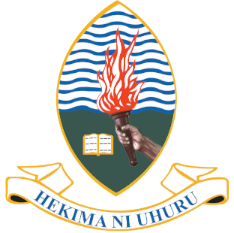
ICT Project Planning and Management in Oil and Gas Industries
Description
Projects in ICT (Information and Communication Technology) require proper planning, organization, and resource management to successfully achieve specific goals. Therefore, practitioners and experts in the field should be acquainted with the necessary tools and professional skills to address practical challenges in ICT projects. This fourteen-day training provides principles, theories, and practical guidance for ICT project managers to handle and accomplish tasks related to their job descriptions. Using sophisticated tools, participants will be trained practically to master modern methods and techniques in the management of advanced ICT projects across a range of industrial sectors: finance, agriculture, health, mining, education, and e-government, among others. In this training, more emphasis will be put on projects in the oil and gas industries.
Objectives
The primary objective of this training is to equip participants with practical knowledge and skills to undertake ICT projects. The training focuses on real industrial projects to ensure that participants generate outstanding results within the constrained project timeline.
Learning outcomes
|
Upon completion of this training, participants are expected to gain knowledge and professional skills to undertake the following tasks: |
|
|
1. |
Recognize and appreciate Project Life Cycle stages and project management areas of knowledge in the context of Telecommunications and Information Technology; |
|
2. |
Identify and apply appropriate tools, methods, and other resources at each stage of the Project Life Cycle; |
|
3. |
Conduct feasibility assessment and plan for a project considering constraints in time, budget, scope, and quality requirements; |
|
4. |
Communicate appropriately necessary information to the project stakeholders in a timely manner; |
|
5. |
Match customer requirements to the final project deliverables per the given time, budget, scope, and quality requirements; |
|
6. |
Discover methods and techniques to ensure that projects are executed timely under the minimum possible budget while meeting customers’ specifications and expectations; and |
|
7. |
Acquire different techniques for forming and leading effective teams to achieve maximum project output. |
Topics
|
1. |
Introduction
|
|
2. |
The Project Life Cycle
|
|
3. |
Project integration management |
|
4. |
Project planning using software tools
|
|
5. |
Gender mainstreaming in project planning and management |
|
6. |
Project implementation
|
|
7. |
Closure
|
Target Group
(1) ICT managers,
(2) Hobbyists and practitioners in ICT
(3) Policymakers, and
(4) Students in the ICT field.
Course Materials
Each registered participant will receive a copy of the instructors’ slides and other materials, such as references, papers, and software used during the course.
Certificate of Attendance
Participants will be awarded certificates of attendance by the University of Dar es Salaam.
Fee
(1) TZS 2,500,000 (Tanzanians)
(2) USD 1,100 (Foreigners)
Payment
All payments should be made centrally through Control Numbers provided by the University of Dar es Salaam. After registration, a Control Number and invoice will be emailed to you using the information you have provided in the registration system.
